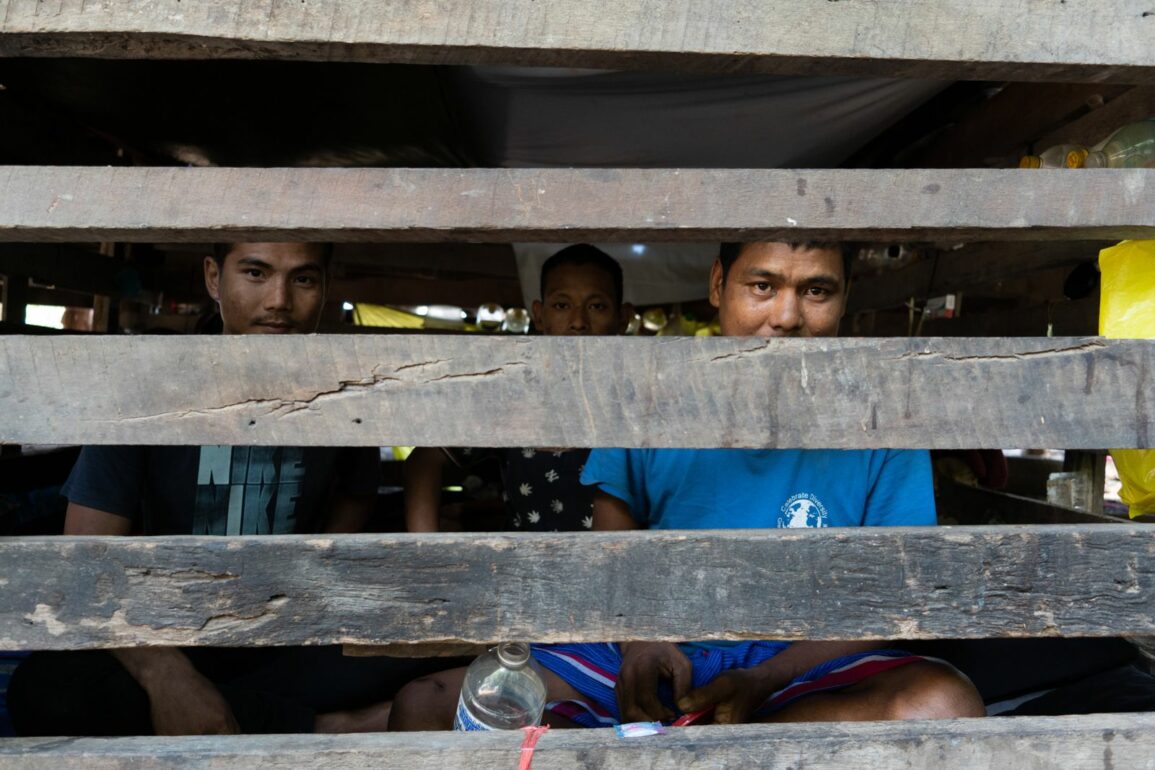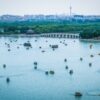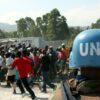This experience is one of a kind: Pierre Terraz has lived the reporter in the most adventurous sense of the way. A year ago, he spent a month as a war reporter with the rebel forces in Myanmar (formerly called Burma). From crossing a border illegally to following the day-to-day of teens fighting in the civil war, Pierre Terraz shares his experience, vision and stories.
Pierre Terraz wrote several stories about the civil war in Myanmar for Philosophie Magazine, a French monthly trade magazine. A freelance journalist, he proposed the idea to Philosophie Magazine who bought the story and helped him logistically for his trip. “I used to live in the country as a child”, he explained. He was shaken by the coup in 2021. “After the military took control of the country, several manifestations ended very badly. It evolved into a real, open conflict, against the government.”
Silence in the media
For the young journalist, the lack of media attention was particularly startling. Indeed, Myanmar is undergoing one of the deadliest conflicts of the world. The UN estimates that two to three million people were displaced since the beginning of the civil war. And yet, Myanmar is not a particularly covered conflict. “I am convinced that reporting in a country that has a lot of media coverage isn’t very interesting. To me, you have to offer a new piece of information, something that hasn’t been discussed yet. There is also an ethical dimension to it: no one really talks about it [Myanmar], when it’s an important subject.”
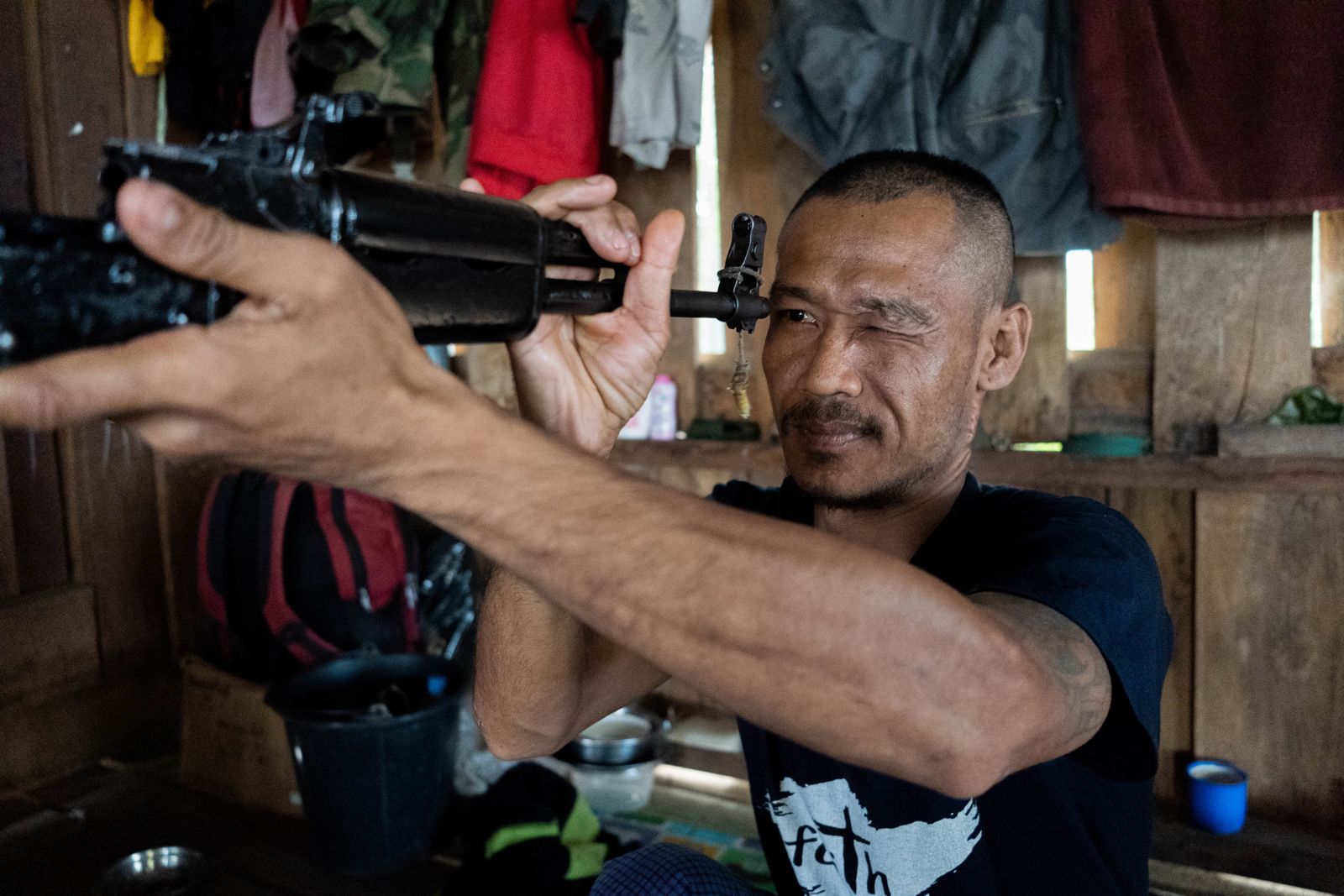
“At the heart of my interest for the coverage of this civil war was that Myanmar is close to last on the RSF [Reporters Sans Frontières, a NGO that evaluates the freedom of the press across the globe] ranking.” In 2023, the country was ranked 173/180. “It is also the second largest prison for journalists in the world, after China. This is also why we don’t really talk about Myanmar: the local journalists can no longer report on their own country, a lot of them are in exile and have fled to Thailand or India. There is no one in the country that can report on the matter. Ukrainian journalists, for example, can still work and report on the war, with better expertise than us. But in Myanmar, the only journalists that are roughly able to work are foreign journalists who will publish their articles in a country where the press is free.”
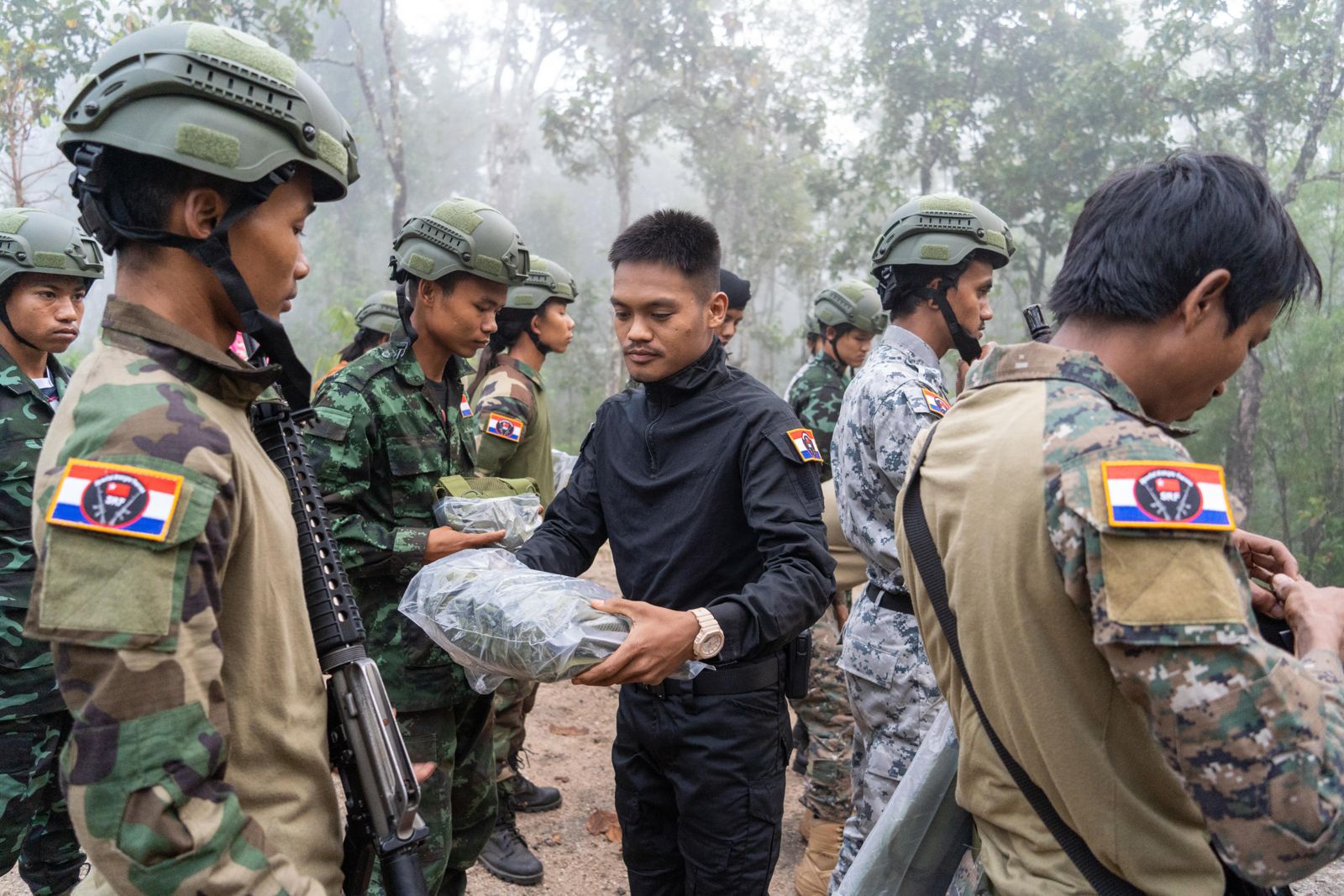
Reporting illegally
Pierre Terraz thus entered the country illegally, crossing the border with Thailand with the help of a rebel group. He followed the rebels for a month, going from camp to camp in Kayin State, one of the states in which the conflict is the most active. “I had to negotiate for six months with the rebels before they accepted my request. I went to a town near the border, in Thailand. There, I had to wait for ten days, which was very stressful. They suddenly sent me a message saying ‘leave your place right now, go meet a guy who will make you cross the border.’ A car came, picked me up, and we drove through the jungle between Myanmar and Thailand.”
The rebel groups live in camps hidden within the jungle. Pierre Terraz spent two weeks walking in the forest: “My days were going from camp to camp, and getting closer to the centre of the country. One of the camps was dedicated to the treatment of injured soldiers, a dodgy camp made of bamboo shacks. Another was for the formation of young recruits.”
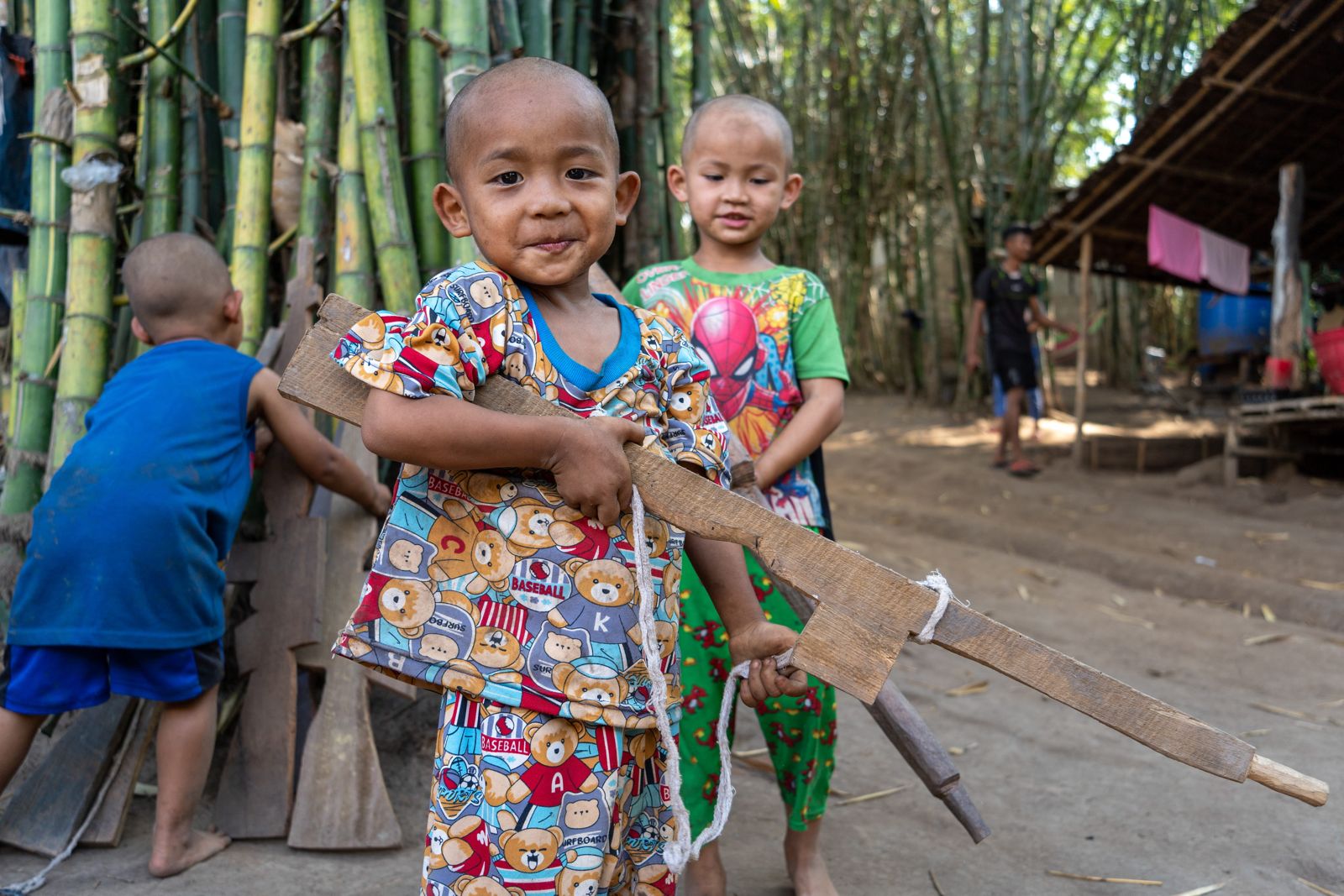
Towards unity: a beacon of hope
For him, the most interesting part of his report was the unity he observed between the rebels: “Myanmar is a country with 135 different ethnic groups. I was with a Christian ethnic minority, but there are 135 ethnic groups with different religions, languages, cultures, traditions… What I found really interesting was that the rebels are young people coming from various ethnic groups. These groups used to not get on at all. This is the first time that they put their differences aside and agree on one thing. This ethnic diversity and this united popular movement bears a lot of hope. Some rebels did not speak the same language and still managed to fight together.”
Lost generation
The most difficult parts about his time spent in Myanmar, he explains, were the moments when he directly witnessed the violence of the conflict. “It was hard to see how young the rebels were. The youngest I met was seventeen. They’re younger than me and they’re killing people”, he said. “I met a guy who was twenty and who lost his leg because he walked on a mine. I thought to myself: ‘This is the kind of youth that he is having’. It’s a lost generation.”
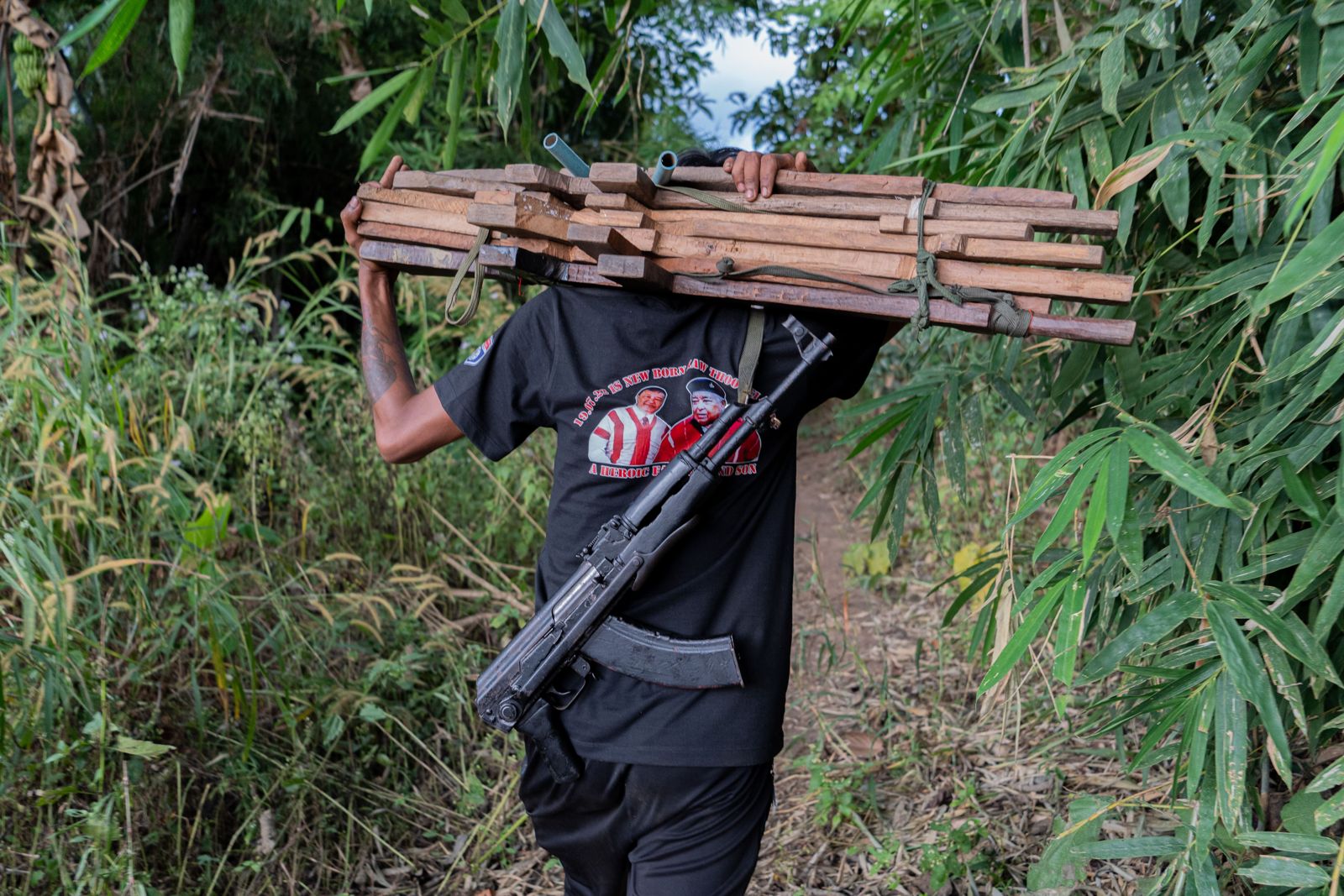
Pierre Terraz wants to go back to Myanmar in a few months, this time to the Western part of the country to get an update on the evolution of the war. “You have to move, go and see. I agree with the sentence ‘silence kills’. When you know that something terrible is happening, you have to speak about it.”


